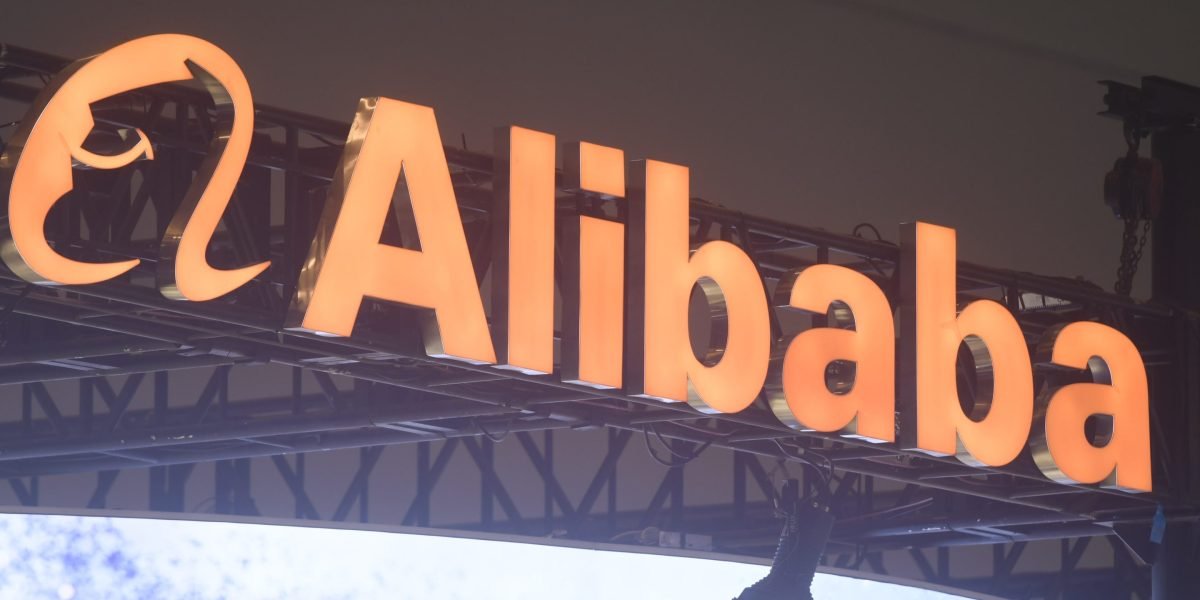By Luca Bertuzzi ( September 1, 2025, 08:45 GMT | Insight) — The EU AI Act requires providers of generative AI to label synthetic content, but a specialist warns this may not cover AI agents that act independently. Researcher Alan Chan says the law’s wording is unclear on AI-generated actions, such as bots making purchases or manipulating online content. He argues actions should also be labeled to prevent deception, as existing industry practices may soon be ineffective.The EU AI Act includes a transparency obligation for providers of generative AI systems to indicate whether their content is synthetically generated. But as AI becomes more agentic, this requirement may not be sufficient, a specialist says….
AI Insights
EU Reports ‘Very High Momentum and Interest’ in AI Infrastructure

Seventy-six companies have expressed interest in setting up artificial intelligence (AI) infrastructure in Europe, the European Commission said Monday (June 30).
AI Insights
AI shame grips the present generation: What’s driving Gen Z’s anxiety over artificial intelligence

Artificial intelligence is no longer a futuristic concept—it is the invisible engine powering modern workplaces. Yet, for Gen Z, this engine often hums with an undercurrent of anxiety. While older generations might approach AI with caution or curiosity, the youngest professionals find themselves thrust into a paradox: they are expected to master AI tools instantly, yet rarely receive guidance, training, or institutional support. The result is a pervasive tension, now recognized as “AI shame,” where employees hide their reliance on technology or feign expertise to avoid judgment.A 2025 survey by WalkMe, an SAP company, highlights the stark reality. Nearly 89% of Gen Z workers use AI to complete professional tasks—but 62% hide their AI usage, and 55% pretend to understand tools in meetings. In essence, the generation most comfortable with technology is also the most anxious about being judged for it. This tension is intensified by a lack of formal training: only 6.8% of Gen Z employees report receiving extensive guidance, while 13.5% receive none. With little structured support, most are left to navigate complex AI tools independently, often resorting to unsanctioned solutions that further heighten workplace insecurity.
The roots of Gen Z anxiety
The unease is not just about capability; it is about expectation and pressure. AI, while designed to increase productivity, paradoxically slows down many young workers: 65% of Gen Z respondents report that AI complicates rather than simplifies their workflows. Meanwhile, 68% feel pressured to produce more, and nearly one in three are deeply concerned about AI’s long-term impact on their careers.Another critical factor is the emerging “AI class divide.” Training and support are often disproportionately provided to executives and senior employees. Only 3.7% of entry-level staff—largely Gen Z—receive substantial guidance, compared with 17% of C-suite leaders. The consequence is a workforce where the heaviest users of AI are the least supported, intensifying stress and limiting the effective use of technology.
Turning anxiety into opportunity: Practical strategies for Gen Z
Despite these challenges, there are actionable ways for Gen Z to reclaim agency over AI:
- Proactive skill-building: Seek structured learning opportunities—online courses, internal workshops, or mentorship programs—to gain confidence and reduce reliance on guesswork.
- Collaborative learning: Form peer networks within or outside the organization to share AI strategies, troubleshoot issues, and create a support system for knowledge exchange.
- Transparent documentation: Keep records of AI-assisted work. Transparency in how AI is applied can reduce fear of judgment and demonstrate competence to supervisors.
- Prioritize critical thinking: AI is a tool, not a replacement for human judgment. Developing problem-solving skills ensures decisions remain robust and independent, reducing over-reliance on automation.
- Experiment strategically: Controlled experimentation with AI allows workers to learn without fear. Framing errors as learning opportunities fosters resilience and self-confidence.
The broader implication: Rethinking workplace AI culture
The Gen Z experience illustrates a broader challenge for organizations: AI adoption without support creates not efficiency, but anxiety. MIT research suggests a 95% failure rate for generative AI pilots at large enterprises, reflecting the gap between the theoretical promise of AI and its real-world application. Companies that fail to train and support employees risk a workforce where innovation coexists with stress, and potential remains unrealized.Ultimately, for Gen Z, mastering AI is not only a technological challenge but a psychological one. By embracing education, collaboration, and critical thinking, young professionals can transform AI from a source of silent anxiety into a catalyst for career growth. The task for organizations is clear: provide guidance, encourage experimentation, and recognize that the human side of AI is just as important as its computational power.
AI Insights
EU AI Act’s transparency measures might not capture AI agents, researcher says | MLex
Prepare for tomorrow’s regulatory change, today
MLex identifies risk to business wherever it emerges, with specialist reporters across the globe providing exclusive news and deep-dive analysis on the proposals, probes, enforcement actions and rulings that matter to your organization and clients, now and in the longer term.
Know what others in the room don’t, with features including:
- Daily newsletters for Antitrust, M&A, Trade, Data Privacy & Security, Technology, AI and more
- Custom alerts on specific filters including geographies, industries, topics and companies to suit your practice needs
- Predictive analysis from expert journalists across North America, the UK and Europe, Latin America and Asia-Pacific
- Curated case files bringing together news, analysis and source documents in a single timeline
Experience MLex today with a 14-day free trial.
AI Insights
Alibaba gains $50 billion value after AI progress fuels rally

Alibaba Group Holding Ltd.’s stock leapt more than 19% after reporting a surge in revenue from AI, underscoring the steady headway it’s making against rivals in a post-DeepSeek Chinese development frenzy.
China’s e-commerce leader posted a triple-digit percentage gain in AI-related product revenue as well as a better-than-anticipated 26% jump in sales from the cloud division—the business most closely tied to the artificial intelligence boom.
That helped assuage investors nervous about the fallout from a worsening battle with Meituan and JD.com Inc. in internet commerce. Alibaba’s shares gained their most intraday since November 2022 in Hong Kong, boosting the company’s market value by more than $50 billion. Turnover in the stock marked a record high as of early afternoon. The rally helped energize the broader AI sphere: Ernie-developer Baidu Inc. gained as much as 5.8%, while Tencent Holdings Ltd. also climbed.
“Alibaba’s earnings underscore a bifurcation within China tech: AI is delivering scalable growth, while traditional consumer-facing segments remain mired in destructive price competition,” said Charu Chanana, chief investment strategist at Saxo Markets.
“The triple-digit surge in AI revenue and robust cloud sales show Alibaba is repositioning for longer-term relevance in the tech stack, not just retail dominance,” she added.
Alibaba’s progress in AI—where it is considered among the front-runners in Chinese artificial intelligence development—helped gloss over concerns about the three-way battle gripping online commerce.
That dealt more damage than anticipated to some of the country’s e-commerce leaders: JD’s profit halved in the quarter while Meituan warned of major losses, triggering a $27 billion selloff of the three companies’ shares last week.
The AI element helps explain why Alibaba’s stock has easily outpaced its more commerce-reliant rivals this year. Alibaba has also leveraged the growth of an international arm that encompasses some of the world’s most-recognized online shopping platforms from Lazada to AliExpress.
It has “China’s best AI enabler thesis,” Morgan Stanley analysts including Gary Yu wrote in a research note. That’s as losses from meal delivery and instant commerce peak this quarter, they said.
Investors are now focused on whether Alibaba will pursue that margin-eroding competition, at a time it’s declared record amounts of spending toward developing AI services and computing.
On Friday, commerce chief Jiang Fan argued that investments in quick commerce—food delivery and instant shopping—had already driven 20% growth in users on its main Taobao marketplace. The fledgling division has in four months grown to the point that it can begin to achieve economies of scale, he added.
Alibaba is simultaneously making substantial investments in the AI field, developing large language models to avoid falling behind in a critical technological race.
The company views AI as essential to its future, whether in terms of providing cloud computing, powering its core business or coming up with services to challenge OpenAI and DeepSeek. CEO Eddie Wu went as far as saying in February that artificial general intelligence, or AGI, is now the company’s primary objective.
Just last week, Alibaba updated its own open-source video generating model, part of a string of recent upgrades that span the gamut from agentic AI services to chatbots.
It remains to be seen if Alibaba can turn AI into a money-spinner in an increasingly competitive field. From Baidu to Tencent, Chinese firms are enhancing and releasing AI models at a frenetic pace, increasing the pressure on Alibaba to deliver breakthroughs.
“Alibaba’s breakout reinforces a broader theme in Asia: while global tech remains preoccupied with geopolitics and valuations, parts of China tech are quietly reaccelerating—driven not by hype, but by real revenue growth in AI and cloud,” Chanana said. “This isn’t a broad-based rotation yet—but the divergence is real.”
“Alibaba’s breakout reinforces a broader theme in Asia: while global tech remains preoccupied with geopolitics and valuations, parts of China tech are quietly reaccelerating—driven not by hype, but by real revenue growth in AI and cloud,” Chanana said. “This isn’t a broad-based rotation yet—but the divergence is real.”
-
Tools & Platforms3 weeks ago
Building Trust in Military AI Starts with Opening the Black Box – War on the Rocks
-

 Business3 days ago
Business3 days agoThe Guardian view on Trump and the Fed: independence is no substitute for accountability | Editorial
-

 Ethics & Policy1 month ago
Ethics & Policy1 month agoSDAIA Supports Saudi Arabia’s Leadership in Shaping Global AI Ethics, Policy, and Research – وكالة الأنباء السعودية
-

 Events & Conferences3 months ago
Events & Conferences3 months agoJourney to 1000 models: Scaling Instagram’s recommendation system
-

 Jobs & Careers2 months ago
Jobs & Careers2 months agoMumbai-based Perplexity Alternative Has 60k+ Users Without Funding
-

 Funding & Business2 months ago
Funding & Business2 months agoKayak and Expedia race to build AI travel agents that turn social posts into itineraries
-

 Education2 months ago
Education2 months agoVEX Robotics launches AI-powered classroom robotics system
-

 Podcasts & Talks2 months ago
Podcasts & Talks2 months agoHappy 4th of July! 🎆 Made with Veo 3 in Gemini
-

 Mergers & Acquisitions2 months ago
Mergers & Acquisitions2 months agoDonald Trump suggests US government review subsidies to Elon Musk’s companies
-

 Podcasts & Talks2 months ago
Podcasts & Talks2 months agoOpenAI 🤝 @teamganassi




















